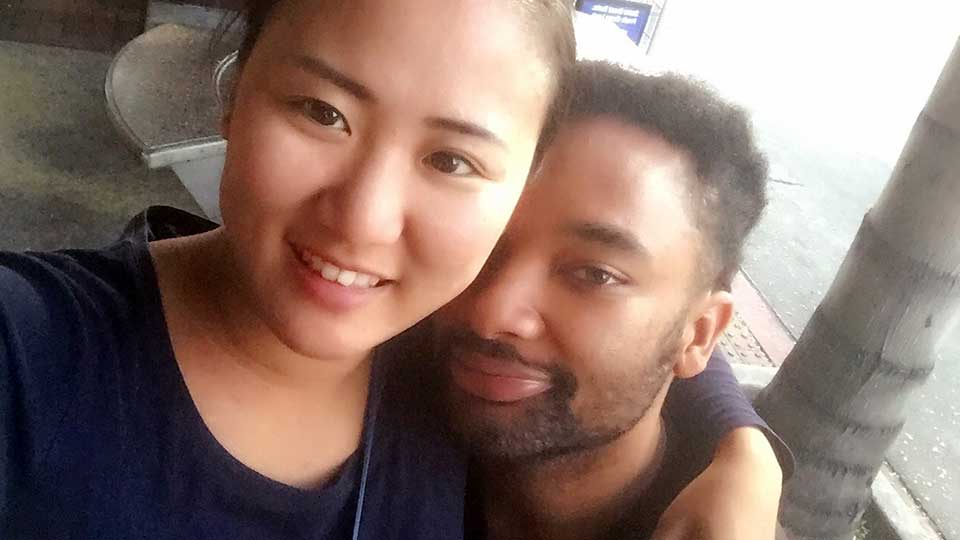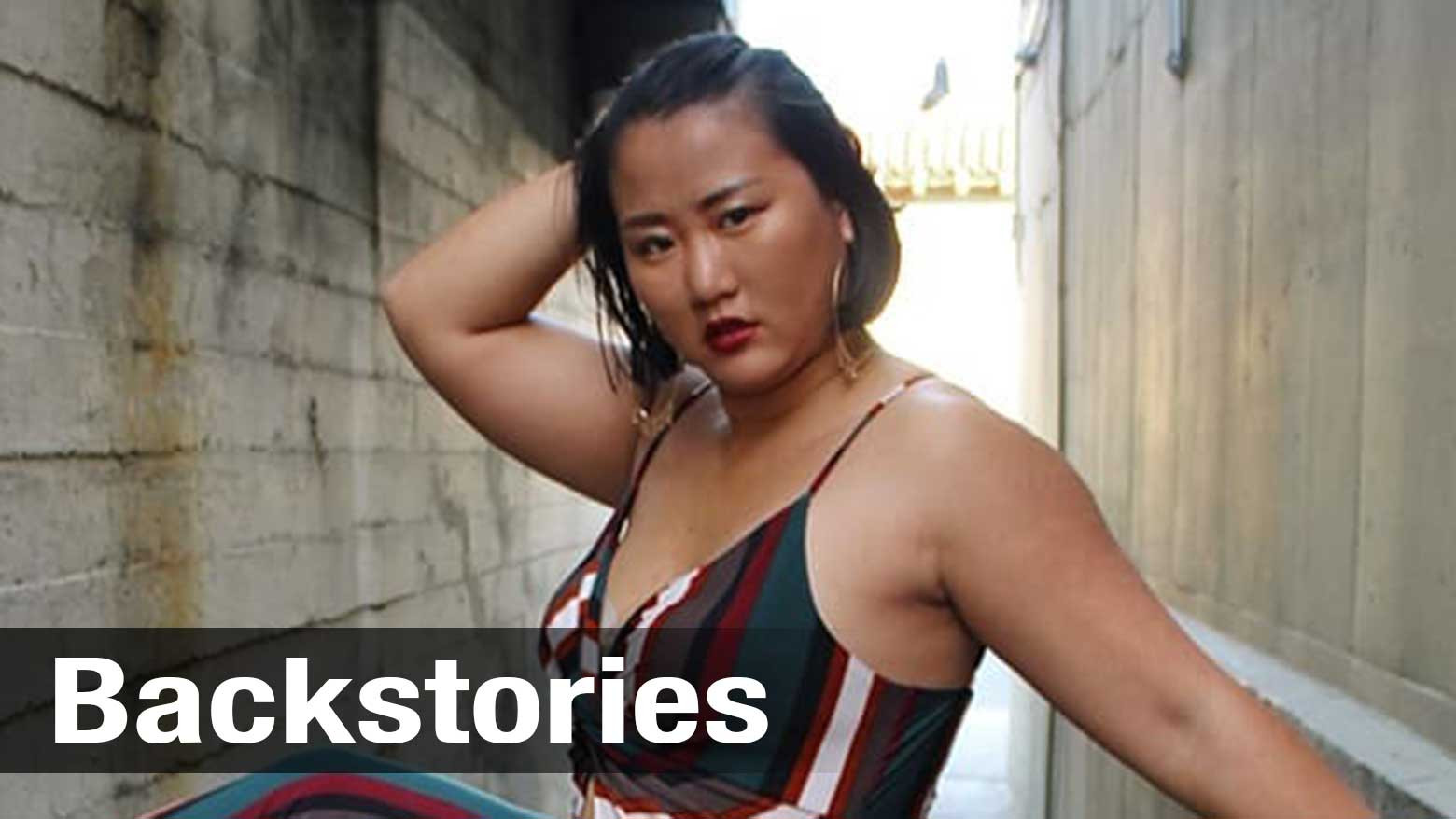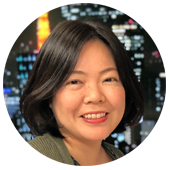“I’m not pretty, not thin, and not fair-skinned,” says Fujii, now 27. “That’s how I thought of myself in Japan. I blamed my appearance for my lack of success in becoming an actor.”
To shake off these worries and keep her dream alive, Fujii moved to Los Angeles six years ago. There, she learned about plus-size models — the ones with larger body types than the super-thin norm.
Encouraged by a friend, she took an audition. Asian plus-size models were rare at the time, so she quickly got the industry’s attention. And it completely changed how she thought about herself.
“While in Japan, I had a complex about my large hips. But in the US, many people told me it was sexy. I became confident in myself for the first time in my life.”
Last year, she married an African-American man. Until then, she had never really experienced discrimination. But talking with her husband, she began to think more seriously about racial prejudice.
“I’ve been living with the idea that my husband could suddenly be arrested,” she says. “And it wouldn’t necessarily mean he did something wrong. He has actually experienced something like that already. He tells me there is no way to avoid the problem, since he was born a Black person.”

But Fujii says recent events have convinced her that the attitudes of Americans toward racial discrimination are changing.
“People have been saying, ‘Black Lives Matter’ for more than 10 years. But often, someone would immediately snap back: 'All lives matter,’” she says. “That phrase directs the focus away from racial discrimination that black people have been suffering. But in recent protests, I don’t hear the phrase so much. Perhaps people are starting to put themselves in the shoes of African-Americans.”
Fujii has not taken part in the protests herself. She thought it was important to stay home and not risk spreading COVID-19.
She says that she doesn’t think the protests will immediately fix the deep divisions in the country, which have developed over a long time.
“But I think we have to keep trying to change people’s way of thinking, even a little at a time,” she says.
Fujii was recently involved in a project that gave her a renewed optimism about her adopted country. She was invited to audition for a video to promote a new Instagram function. The theme was diversity.
“I didn’t know what it was about, but I went anyway,” she says. “Various people turned up for the audition, including plus-size models like me, as well as people of different sexual orientations. It was extremely inspiring to meet people completely different from me. I felt my horizons broadened just by talking to them.”
And despite the deep divisions on display every night on the news recently, Fujii remains positive.
“I still think the US is a country that embraces diversity,” she says.

